Wartime Memories by Derek Robinson
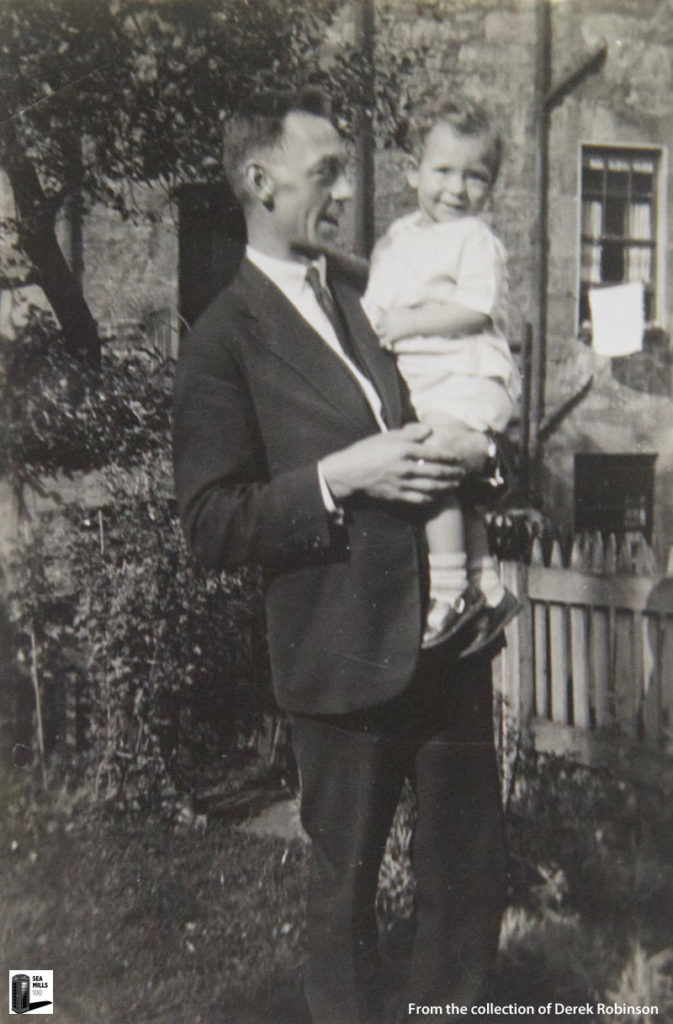
I was only a kid at the time, but my main memory is of being in the Anderson shelter at the bottom of the garden (we lived in West Parade) with my parents on the night that the Luftwaffe missed their target and bombed Sea Mills. The noise of the bombs was impressive but what deafened me was the quick firing anti-aircraft gun on Sea Mills Square. Very powerful. Guns like that very rarely hit German bombers, but they rewarded the general public with the belief that we were fighting back.
Left – Derek with his father
I doubt if you will find any shell or bullet damage in Sea Mills (unlike Berlin, where they have preserved the scars to remind citizens of the battle for Berlin in 1945). I know there was at least one land mine in Sea Mills (the kind that was shaped like a barrel and descended on a parachute, so that it exploded at ground level). It fell at the top end of Westbury Lane where there is a side street, totally destroyed a house and made a mess of the neighbouring houses. The inhabitants of the ex-house were in a shelter in the garden and emerged to see the ruins – but they were unhurt. Land mines were much feared in 1940-41; the combination of silence as they came down and the great explosive power when they arrived was worse than the noise of bombs.
I can remember swapping shrapnel at St Edyth’s school – I still have a chunk of it. It replaced swapping cigarette cards.
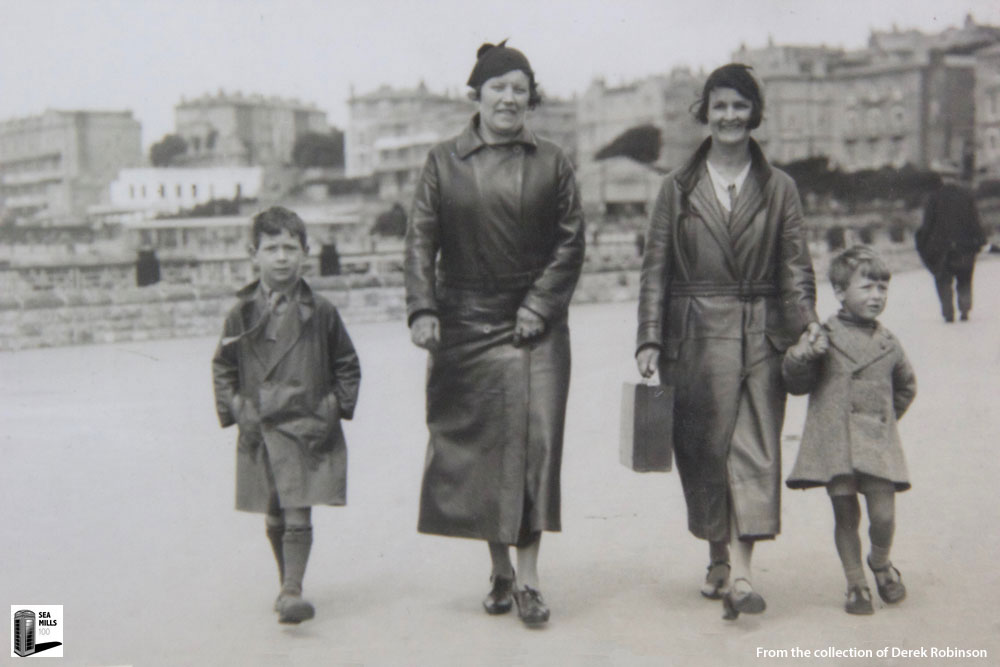
There were many unexploded bombs; we had an unexploded incendiary bomb, kept in the garden shed (I don’t know why). And I recall that Sea Mills square had a large static water tank (for firefighting purposes). I watched a demonstration by ARP workers on the Square: they had a stirrup pump that went into a bucket of water and they showed how, when one worker tired, another could take over without losing the jet of water.
It wasn’t until many years later that I realised that my father – who was a policemen – was in danger during the raids: he came home one day, after being on duty in the centre of the city, with dried molten lead on his cape – it had fallen from a roof on fire.
As far as St Edyth’s school basement was concerned, it was the automatic place for all school kids to go when the air raid siren sounded during school hours. It could be a long time before the All Clear sounded, and kids got bored and restless; so Quentin Williams and I occupied them by telling them stories (Q was the same age as me). Can’t remember what the yarns were about, but it must have worked. I was nine years old then. I’m surprised now that we were so responsible at that age.
While the greatest impact on Sea Mills was the Blitz, not far behind it was the American arrival.
They arrived by sea at Avonmouth; truckloads of GIs appeared, often cheering. No doubt they were relieved to be off the Atlantic, but kids in Sea Mills saw nothing to cheer about – the war was routine for us. On the other hand, the Yanks brought a sense of vigour and can-do to the area. Their camp was half of the Shirehampton golf course; I remember that punishment drill for their defaulters was digging trenches alongside Shirehampton Hill; traces of them may still be there.
Two things struck me: their boots were rubber-soled; on parade they didn’t swing their arms or crunch their boots as the British army did; and their uniform was two-tone – the pants didn’t match the tunic. We thought that was strange. But they had plenty of gum, and gave it away generously.
The second thing was baseball. My guess is that they had a famous player in uniform, and he gave a display of hitting in front of a crowd of GIs. It wasn’t a game; he just whacked baseballs over the golf course, while they cheered. Americans broadened the horizon for Sea Mills considerably.
Domestically, one memory of the war was of saving. Everyone saved everything because everything was scarce. Soap got used until it was invisible. String was valuable; people untangled a length and added it to a ball.
Sweets were strictly rationed; I bought liquorice sticks to chew on, cut from the tree that liquorice comes from. Jam was always one colour, probably plum; we told each other that peace meant we’d have two or three colours of jam. Shampoo was unknown; so was coffee.
Horse-drawn deliveries still happened; if the horse left its mark on the street, somebody soon scooped it up to improve his rhubarb. Jam-jars got washed and kept. Money was a war weapon – Portway School was divided into houses (Blake, Canynge etc) and there was a running contest to see which house bought the most War Certificates. All male teachers at St Edyth’s were in uniform, and when I went to Cotham Grammar School, women teachers there were always addressed as ‘Sir’. Unthinkable now.
Every street in Sea Mills had a small yellow board at the roadside. It was a gas-warning device; it changed colour when gas was present. (Both sides had poison gas in WW2; neither used it.) Every lamppost had a small bin hooked to it; that was where you put bones from the kitchen. We kept chickens at the bottom of the garden (eggs were rare) . Reconstituted (powdered) eggs came from America. We had cousins in Kentucky and they sent us a food parcel, for which were grateful, but the most prized item in it was not the tin of sausages but the fat they were packed in. The ration of fat was very thin. Ice cream was just a memory. (Before the war, a Stop Me And Buy One ice cream tricycle use to do business outside St Edyth’s School.) Bread was never rationed, which meant we could always top up on bread. Nevertheless, wartime diet was healthy ; it was probably better than endless sweets. No bikes; we walked everywhere.
Soon after the Blitz we self-evacuated to the Borders of Scotland and stayed there for two years. We lived deep in the country, I walked every day two miles to the village school, where one teacher taught half a dozen ages in the same room and made a good job of it. I especially remember being taught all the European Allies’s anthems; we sang them in their original languages. Then I walked two miles home again. Aged ten. Did no harm and a lot of good.
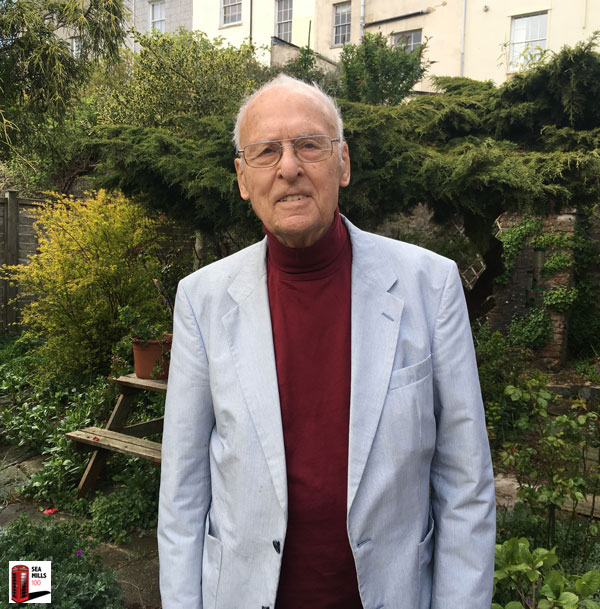
Derek Robinson is an author and broadcaster best known for his military aviation novels full of dark humour. He is also the author of “A Darker History of Bristol” which explores some of the more sordid events in Bristol’s past.
He was nominated for the Booker Prize in 1971 for his first novel “Goshawk Squadron”
Derek also ceremonially opened the Sea Mills 100 museum in June 2019 along with Lord Mayor Jos Clarke.
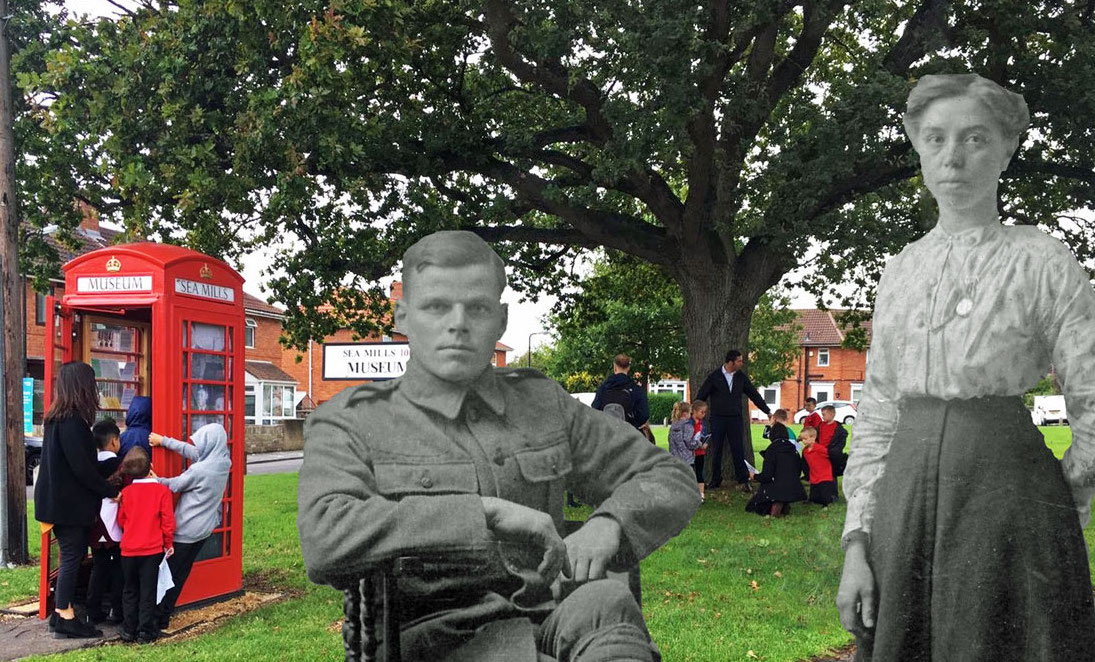
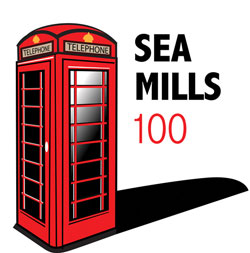

Thanks for sharing such vital information my mothers family lived there at that time and she shared so many stories of that time
Their surname Mackenzie Henderson (Father-Alexander, mother Lucille children Malcolm, Ian, David and Jean)